Adaptive Kinetic Facade: Improving Daylight Performance and Thermal Comfort
Instructors: Zahra Shirzadnia / Ali Goharian / Mohammadjavad Mahdavinejad / Roel Loonen / Mohamed Hamdy
Dates: 24 July – 27 July / 03:40 – 08:15 EST
Themes: Computational Design, Performative Design
Software: Rhino, Grasshopper, Ladybug Tools, Wallacie plugin
Number of Students: 70
Workshop registration full.


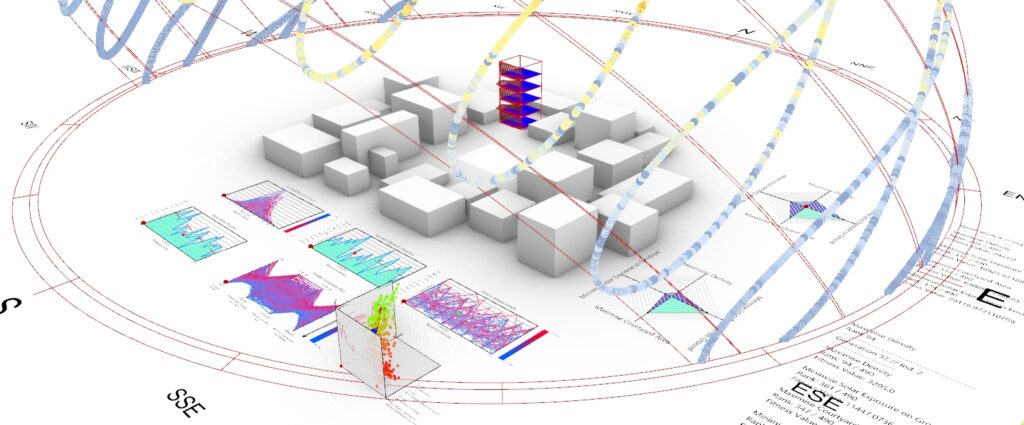
Description:
The ” Adaptive Kinetic Facade: Improving Daylight Performance and Thermal Comfort ” workshop is a
comprehensive four-day tutorial designed to explore the principles and practices of dynamic façade
design. Participants will gain insights into how dynamic and adaptive façade systems can enhance both
daylight performance and thermal comfort in modern buildings. This workshop emphasizes
interdisciplinary approaches and practical applications, with detailed tutorials on parametric design and
relevant software tools, including Rhino, Grasshopper, Ladybug tools, and Wallacei plugin.
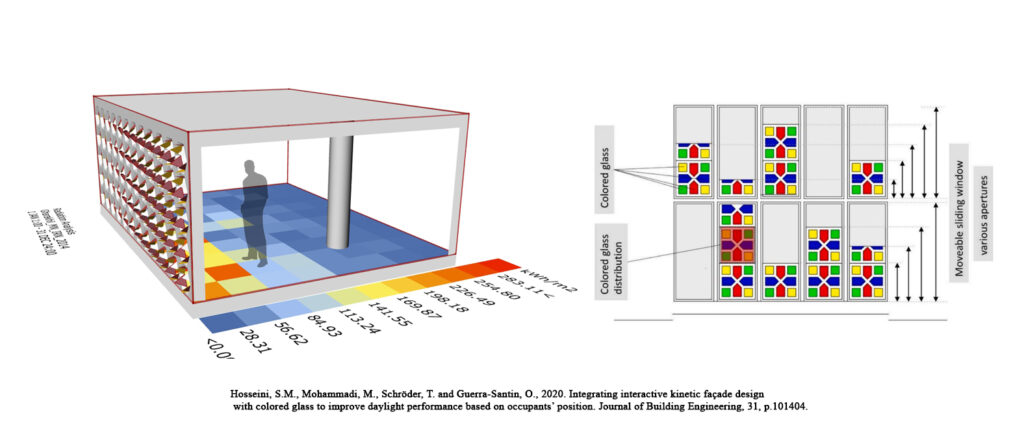
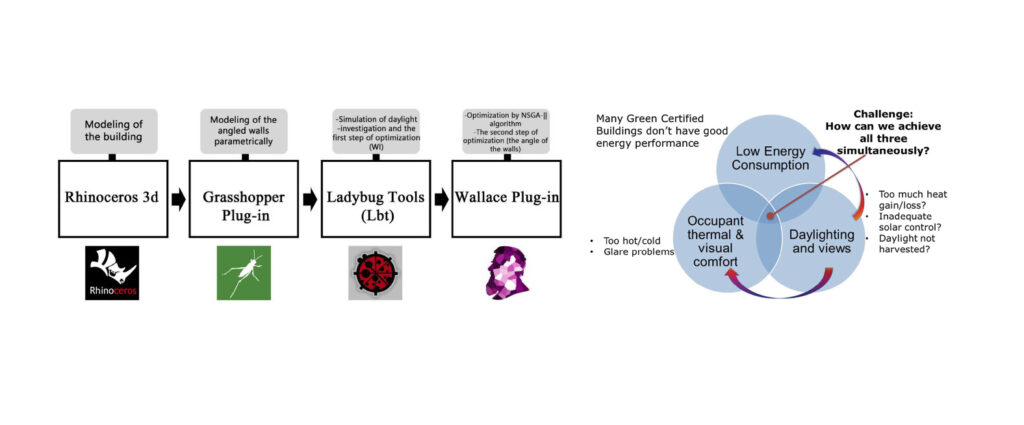
Learning Objectives :
- Understand dynamic Façades: Introduce the fundamental concepts and significance of façades in
modern architecture. - Learn Parametric Design: Provide detailed instruction on using Rhino and Grasshopper for parametric modeling.
- Explore Daylight Design: Teach the basics of daylighting and how to use the Ladybug tools for daylight simulations.
- Understand Thermal Comfort: Cover the basics of thermal comfort and its application using the
Ladybug Tools. - Master Optimization Techniques: Introduce single-objective and multi-objective optimization concepts and their applications using the Wallacei plugin.
This four-day tutorial workshop is designed to provide participants with a robust understanding of
Dynamic façade systems and the tools needed to design and optimize these systems for enhanced visual
and thermal comfort. Through a combination of theoretical lectures and practical software tutorials,
attendees will gain the skills necessary to implement innovative façade solutions in their architectural
projects.
Detail Schedule :
Etiam varius feugiat neque, non posuere felis lobortis tincidunt. Phasellus at tempor purus, vehicula bibendum urna. Curabitur id rutrum diam, in blandit ipsum. Donec id lorem ligula. Maecenas sed condimentum neque. Pellentesque semper felis nec velit ultricies tempus. Fusce efficitur convallis aliquet. In hendrerit lacus nec arcu semper rhoncus. Interdum et malesuada fames ac ante ipsum primis in faucibus. Orci varius natoque penatibus et magnis dis parturient montes, nascetur ridiculus mus. Suspendisse dapibus felis felis, eu imperdiet elit egestas sit amet. Aenean et venenatis magna. Maecenas feugiat sem sed ligula tempor congue. Phasellus non nisi et diam consequat scelerisque eu in libero. Aenean id dui et tellus consectetur pellentesque.
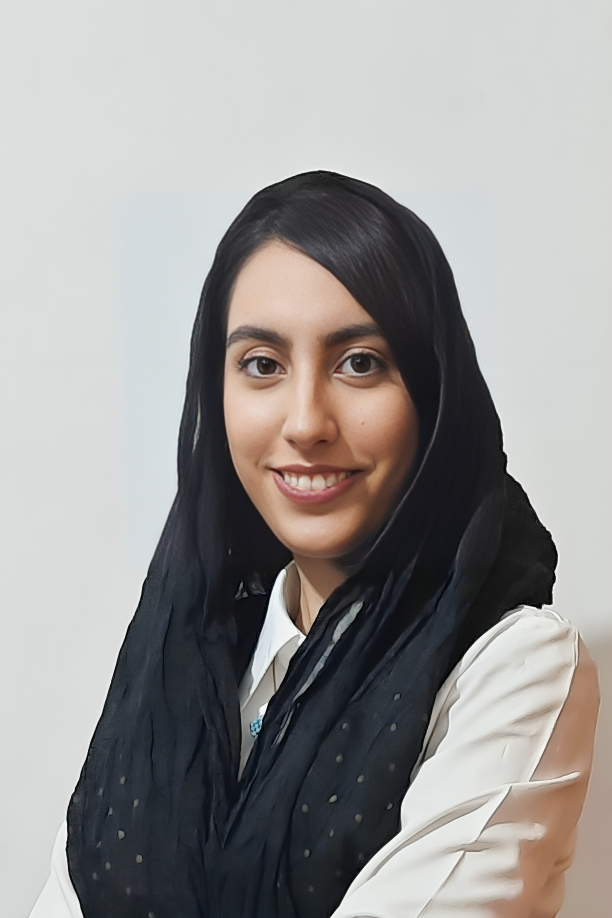
Zahra Shirzadnia:
Member of Highperformance Architecture Laboratory- Compu-lyzer Architect Association, Tarbiat Modares University
Zahra Shirzadnia holds a Master of Science in Architecture and Building Technology from the Department of Architecture, Faculty of Art and Architecture at Tarbiat Modares University in Tehran, Iran. Her academic background includes experience in optimizing building performance, with a focus on daylight efficiency, occupant comfort, and energy efficiency. She has expertise in research, teaching, and utilizing computational tools and techniques.
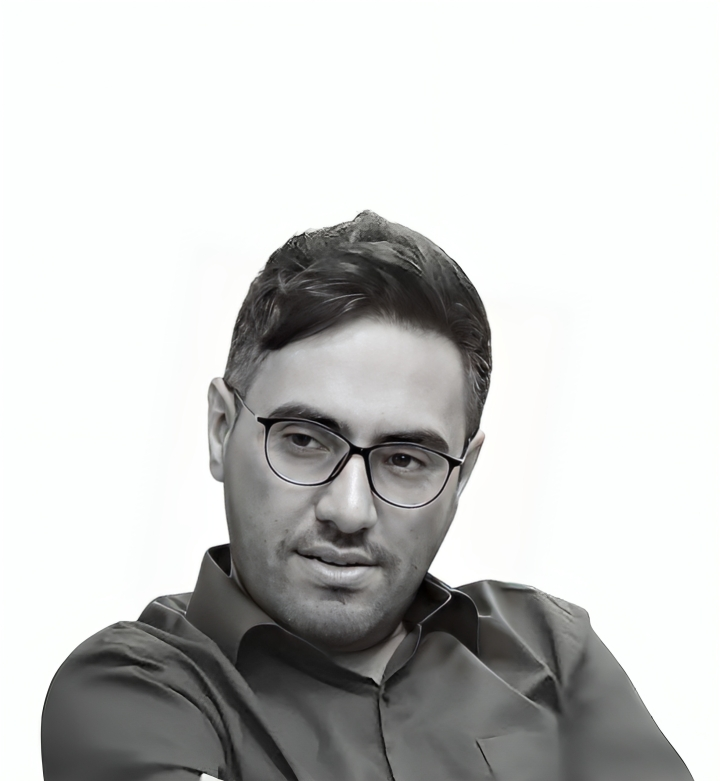
Ali Goharian:
Member of Highperformance Architecture Laboratory- Founder at Compu-lyzer Architect Association, Tarbiat Modares University, Iran
Ali Goharian holds a PhD in Design and Architecture from the Department of Architecture, Faculty of Art and Architecture at Tarbiat Modares University in Tehran, Iran, specializing in energy performance approaches. His expertise includes simulating building functions such as daylighting, visual-thermal comfort, and optimizing energy consumption through computational design methods. Goharian founded Compu-lyzer Architects Association, a vibrant Iranian community that unites computational designers. This
association integrates diverse talents in digital fabrication, energy simulation, robotics, AI, and related fields to drive innovation in future design and construction processes. Under this platform, Compu-lyzer
pioneers energy-efficient, high-performing architectural solutions by leveraging cutting-edge computational technologies to shape the built environment.
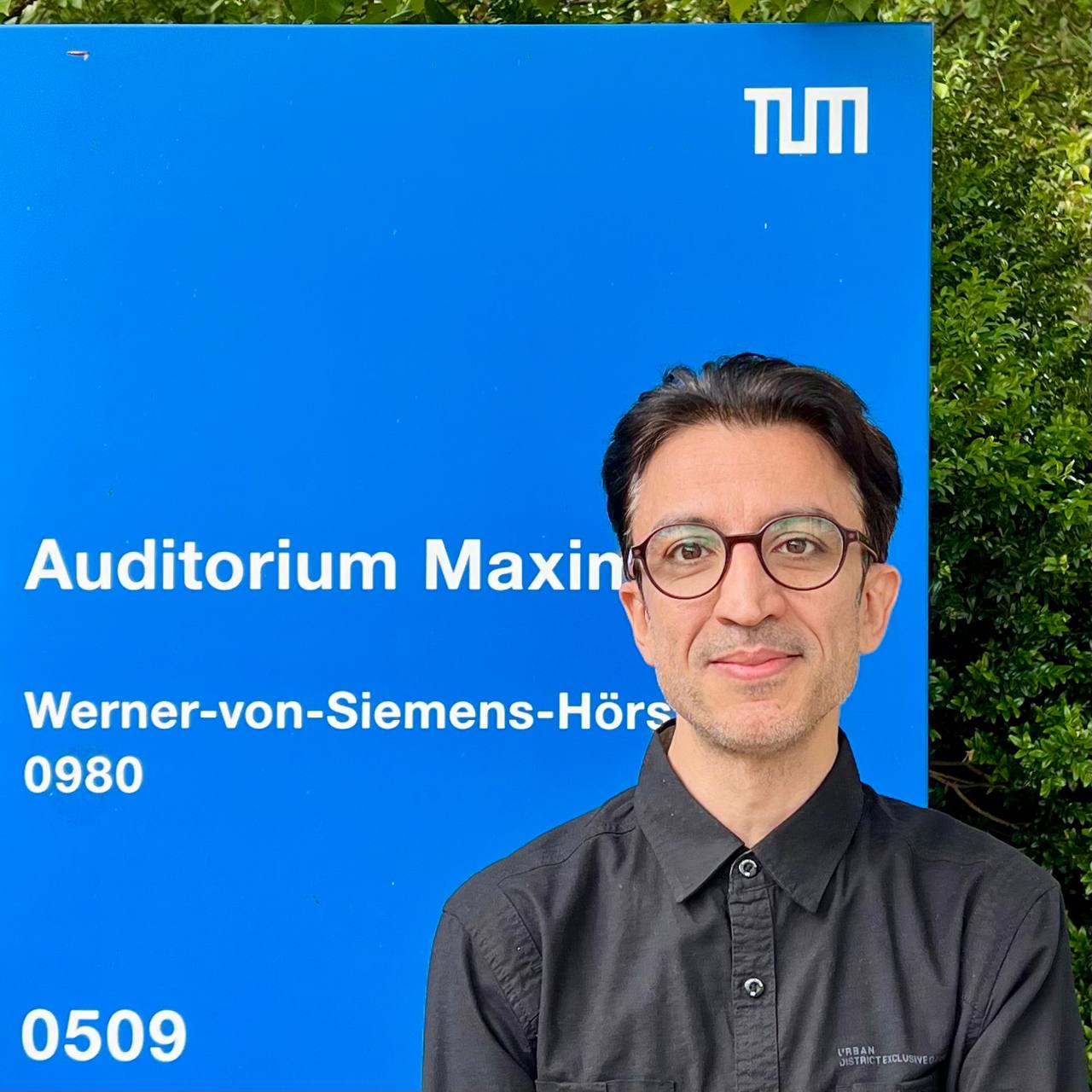
Mohammadjavad Mahdavinejad :
Head of Highperformance Architecture Laboratory- Compu-lyzer Architect Association, Tarbiat Modares University, Iran
Mohammadjavad Mahdavinejad, an architectural engineer with a passion for integrating scientific and mathematical thinking into architectural design and practice. He has a proven track record of winning numerous prestigious architectural design competitions globally. His successful teaching and research career spans Iran, Italy, the USA, and Germany, where he has served as a “guest professor” at several renowned international universities. Recently, his research has focused on a designerly approach to achieving “high-performance architecture,” emphasizing daylightophilic design, water-energy efficiency, and carbon neutrality.
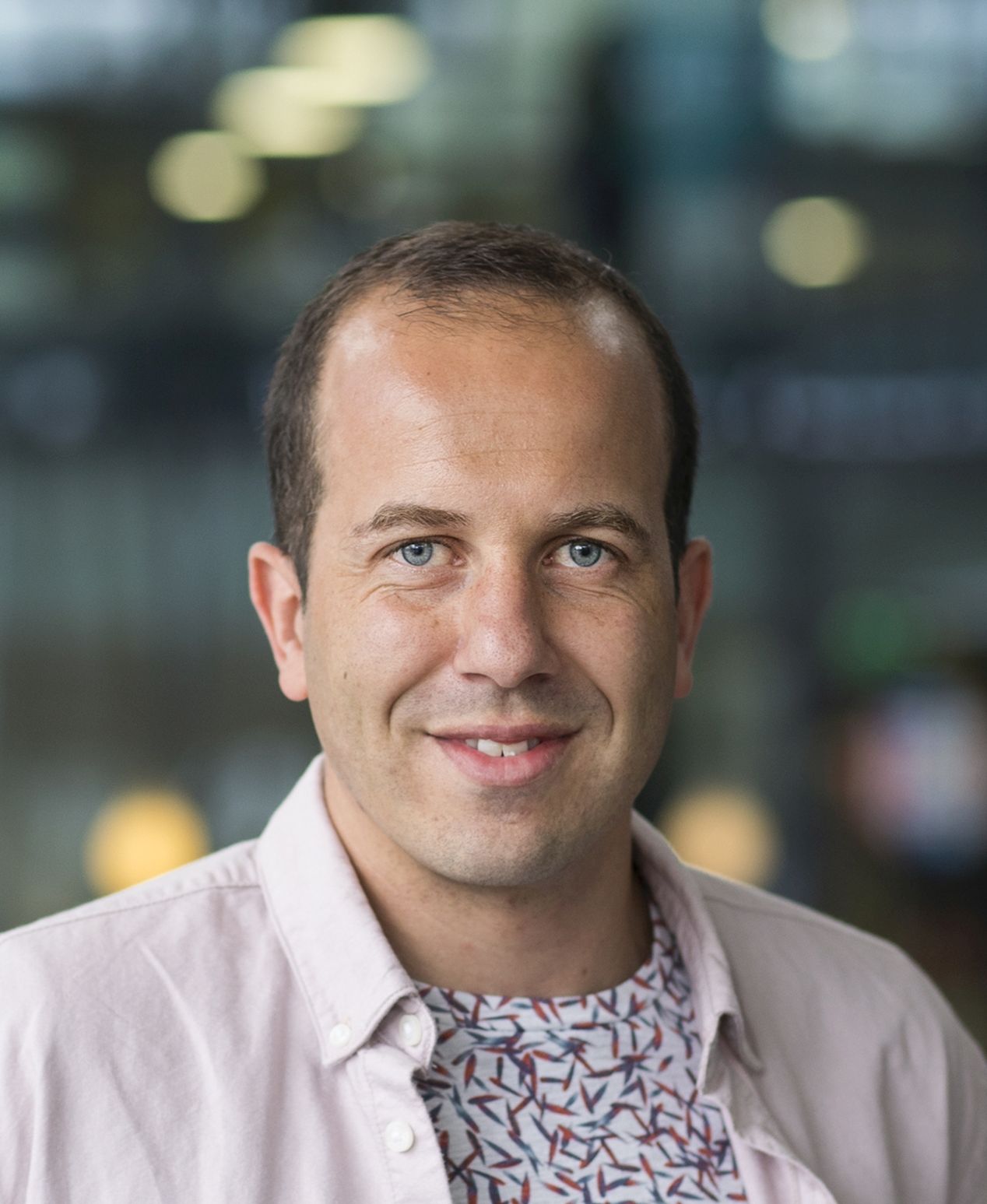
Roel Loonen :
Associate Professor, Eindhoven University of Technology, the Netherlands
Roel Loonen is an Associate Professor at the Unit Building Physics and Services, Eindhoven University of Technology, the Netherlands. His research and teaching focus on the development and application of modeling and simulation strategies to provide decision support for designing buildings that combine high indoor quality with low or no impact on the environment. Roel collaborates with SMEs in various R&D projects, aspiring to accelerate the process of bringing innovative building envelope technologies and renewable energy systems to the market. Many of his projects deal with the advancement of adaptive facades and building-integrated renewable energy technologies, for example through development,
validation and application of new building performance simulation models.
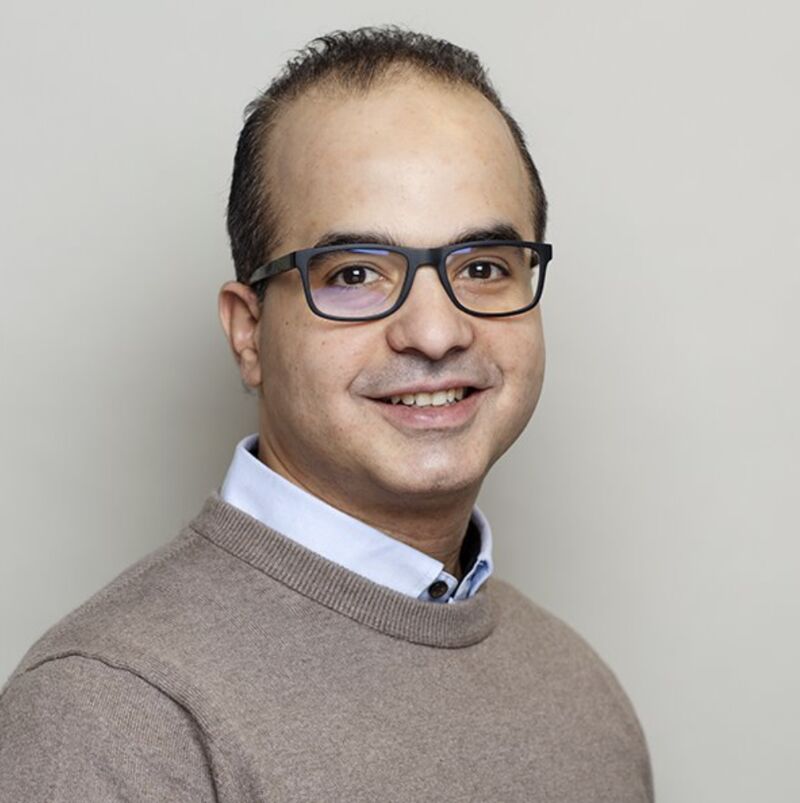
Mohamed Hamdy :
Mohamed Hamdy is a Full Professor, Norwegian University of Science and Technology, Norway
He has 18 years of experience in teaching, research, and consultation within building performance simulation and optimization. Previously, M. Hamdy worked as a senior consultant at METABUILD GmbH in Germany, as a senior scientist at Technical University of Eindhoven (TU/e) in the Netherlands, as a fellowship researcher at Aalto University in Finland, and as a teaching assistant as well as industrial consultant at Helwan university in Egypt. M. Hamdy is an expert in building performance simulation (BPS), building automation systems (BAS), multi-objective optimization (MOO), life cycle cost analysis (LCCA), and building information modeling (BIM). He has 82 peer-reviewed publications. He has 4132 citations, h-index: 42, and i10-index: 28. M.Hamdy has supervised 25 master students and 7 ongoing Ph.D. theses. In Norway, he is a partner in ZEN center (a research project within Zero Emission Neighborhoods in Smart Cities). Internationally, he is an active member of the International Energy Agency – Energy in Building and Communities program (IEA EBC) and a partner in the Horizon Europe project (ARV) as well as the H2020 projects TRAN-URBAN-EU-CHINA and QUANTUM. He is a steering committee and advisory board member for the research projects: ‘’OCCuPANt’’ funded by the University of Liège, Council for Research and Development. M.Hamdy is also a collaborator in the project ‘’The optimal transitions from interactively-isolated systems to the mutually-integrated unity between zero-energy building(s) and zero-energy vehicle(s)”, funded by the Hong Kong Polytechnic University, University Grants Committee (UGC). In addition, he is an associate editor for the Journal ‘’Frontiers in Built Environment ‘’, and a certified reviewer for the Journals: ‘’Applied Energy’’ and ‘’Energy and Buildings’’.
